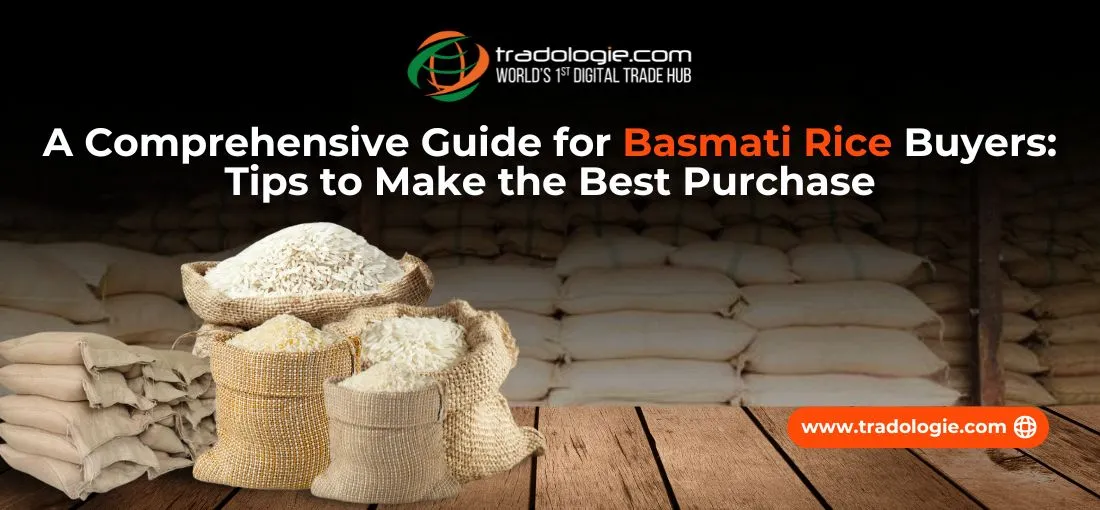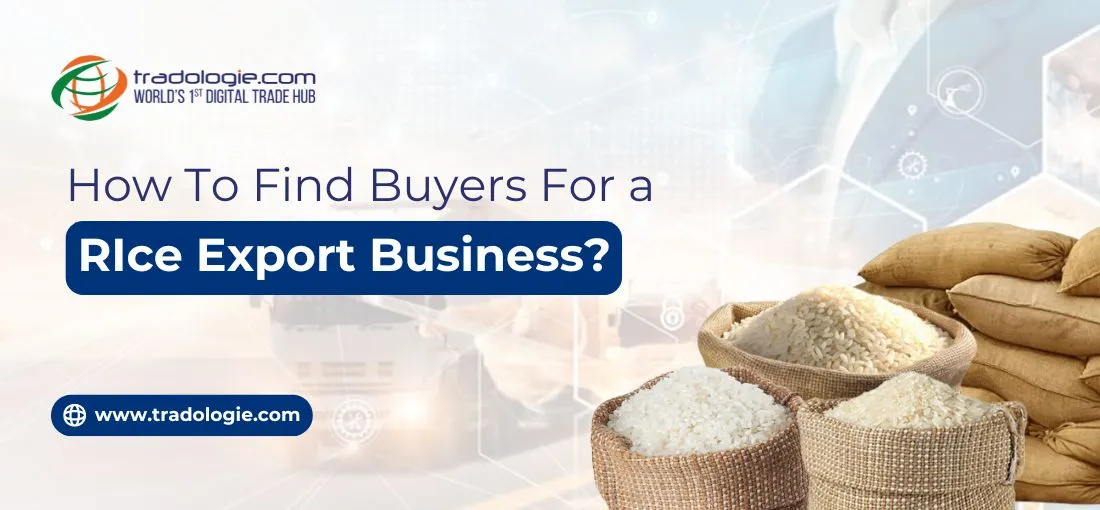Rice is one of the world's most important staple foods, feeding billions of people each day. Among all of its types, non-basmati white rice stands out as the most versatile and economical variety that contributes significantly to global trade. Its adaptability to various climates makes it a valuable commodity for households and economies all around the world. On the other hand, its different grain shapes and sizes make it suitable for a variety of meals.
There are different types of non-basmati white rice in the global market and each variety has its uniqueness.
So, in this blog, we will understand the global market for non-basmati white rice and the key trends and insights. If you want to export rice, or want to get general information about the industry, this blog is worth reading
More Than Just Rice:
Non-basmati white rice is more than just rice, it’s a means of survival for many countries. In fact, this versatile and widely consumed rice forms a staple for not just developing countries, but also many developed countries with price sensitive consumers.
Within the world of agro commodities, non-basmati white rice offers a major chance for food businesses to export rice in bulk in this lucrative international market. The surging global population, greater urbanization, and dietary preferences have established its importance as a key grain. It’s about finding the right buyers and leveraging the opportunities.
Types non-basmati white rice:
Are you looking to import bulk basmati rice? India, a country with a formidable presence as a Basmati rice producer, is its major exporter globally. This aromatic and flavorful rice, exquisitely grown in many parts of India, is highly regarded by food industries that lay a paramount significance on quality over quantity rice.
Importing rice or any other agricultural commodity is a big decision and that involves a big monetary risk. However, not when you know what steps to follow to make the right purchase.
This blog is your comprehensive guide if you want to import basmati rice without any risk and hassle.
Finding the right suppliers:
Connecting with reliable Basmati rice suppliers is an essential step in the import process, but it can be challenging. Importing through middlemen or unverified sellers comes with potential risks, such as receiving substandard products or, in rare cases, not receiving the product at all. To minimize these risks, it is crucial to thoroughly research suppliers before finalizing any deal. Ensure they have the necessary documentation, such as an export license, company registration, and a proven export history.
Getting competitive quotes:
Running a successful business is largely premised on procuring the materials at competitive prices, and so is the agro trade industry no different. Getting quotes from multiple sellers ensures you get to compare and pick the best option. It isn’t something you need to do in a rush as the one of the sellers could be waiting to provide you with the most competitive offer. Not to mention, it is your right to bargain and give counter offers. With time and experience, you will get the confidence to do so with proficiency.
Securing the quality standards:
Suppose you import bulk basmati rice and its quality turns out to be substandard, then what would you do? Well, you cannot do anything. However, if you get an inspection certification before the commodity is shipped, then you can rest assured about the quality. This is something which should be a critical part of the checklist for not just rice, but for importing any agro commodity. Check for reputable agencies that provide the best inspection agro goods service in the region and get the certification beforehand.
Ensuring safe payment terms:
Working on safe payment terms isn't just a choice, but an absolute necessity. It gives peace of mind knowing your transaction is safe with no monetary risks. And most importantly, the transaction should be between the buyers and sellers directly with no multiple middlemen posing as either party. So ensure that you work on safe payment terms like a Letter of Credit where the bank acts as a neutral party and takes the guarantee for your secure payment.
Conclusion:
So, if you are looking to import basmati rice, there are many important aspects that you need to consider. Right from finding the right buyers to quality certifications and secure payment terms, every tiny aspect is important and plays a paramount role in the smooth import process.



.webp)

.webp)